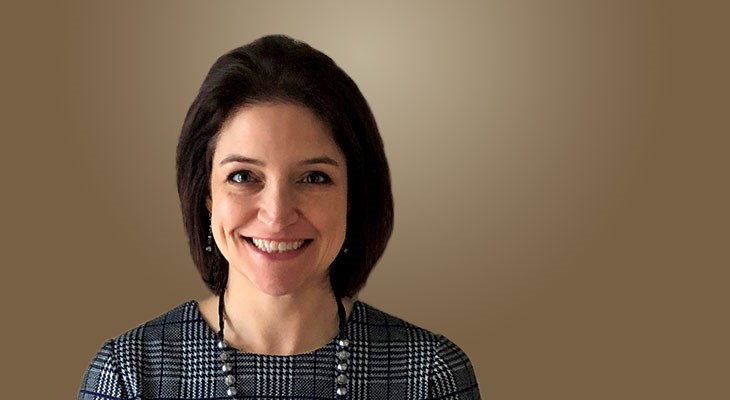When Sarah Palya’s son, Gus, got a central line eight years ago because of his medical challenges, including intestinal failure and autism, it changed everything.
“It made me become a lot more serious in what I was doing,” she says.
Palya had started a lifestyle-type business, Gus Gear, making accessories to secure her son’s ostomy pouch and tubes. These simple, practical remedies helped cover and secure the devices so he could live a safer, fuller and more active life. She sold her devices online to other end users.
Palya created a securement device for his new central catheter, which keep his line locked down and safe, not only from accidental pulls, but also from his fingers. Then, she started getting calls from hospitals where clinicians were seeing the wraps on children and wanted to know more.
The CEO, however, had limited business experience. She’s had to learn as she goes, and now she feels her startup is ready to jump to the next level, including possibly taking on investors.
Get connected
In the last year, Gus Gear has doubled the number of hospitals in the U.S. and Canada using its wraps. The company also doubled its revenue and has sold more than 1,500 central line wraps, as class 1 exempt medical devices.
In addition, the business is embarking on a clinical trial at UMPC Children’s Hospital of Pittsburgh, which aims to make the products reimbursable so parents don’t have to pay out of pocket.
In the beginning, Palya wanted to company to grow slowly as she was the only employee.
“I had never run a business before,” she says. “My background is in education. So, this is all completely new to me.”
Palya tried to do everything on her own. She didn’t get connected to Innovation Works until several years after the company’s founding. In hindsight, she would have reached out to others sooner.
“Not only do you need the support of those in the community that have been through things before, it’s also really empowering to see people that have gone through similar things and have had success,” Palya says. “So, getting connected with all the resources in your industry and in your area is important.”
Today, she’s put together a focused group of advisers that she meets with weekly.
“They’re very good about steering me in the right direction, answering all the questions that I have and connecting me with the right people,” Palya says.
She’s also learned that you need let some things go. A startup founder wears many hats, but he or she only has expertise in certain areas and needs to focus on those strengths.
“I know the product and the market so well — being so intimately connected with it,” Palya says. “I know the customer and I feel like I have a great handle on that. But I need advisers to give me expertise on the business side, like an Innovation Works or AlphaLab Gear, and finding those kinds of people is what has enabled me to start to grow a lot faster.
“In the beginning I tried to do everything myself, and it really isn’t possible to do everything yourself and do it well. So, getting things that are not my forte off my plate was important.”
Think strategically
Another critical lesson is thinking strategically about things like investment, including what funding Gus Gear needs and what form that funding should be in. So far, Palya has funded her company through sales and bootstrapping.
In 2018, she won grants through two competitions, PInCh (University of Pittsburgh Innovation Challenge) that’s helping pay for the clinical trial, and the New England Pediatric Device Consortium.
Palya is ready to evolve the company — thinking about how to grow, rather than watching it grow — even though it’s taken her awhile to get there.
“(Gus Gear) has grown on its own, first starting with word of mouth and then with little nudges here and there from me,” she says. “It’s grown more than I would have imagined, but I wish I had thought about that in a more strategic way earlier on. It would have made the process faster.”
By participating in the competitions, Palya feels more ready to go in front of investors. “I’ve become a lot more comfortable with it and I’m getting better and better the more I do.”
She’s also spoken to clinicians at a national conference and at hospitals, but that kind of speaking is more enjoyable because they already see the value in what she’s doing.
Palya aims to Gus Gear scale up in a thoughtful way. Instead of just having the product in the department level of hospitals, her is for the company’s products to become the standard of care for all patients with central catheters.




